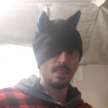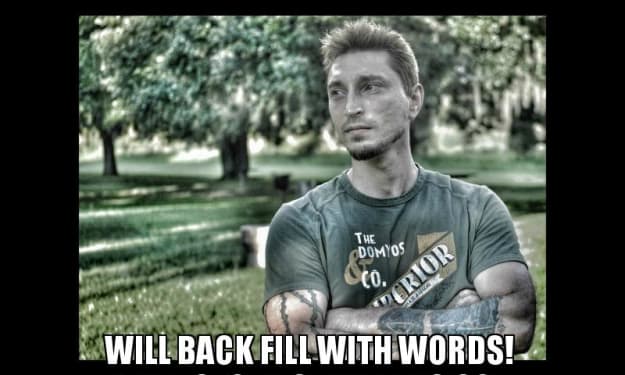Passive Writing
What is it, and why should I avoid it?

I was contacted by a potential client, who had mentioned something along the lines of wanting to hire an editor, but before she committed to anyone, she wanted to know something; she wanted to know the reason for avoiding the verb “was”.
I was taken aback. Never in my life had I heard of anyone recommending against the use of a “to be” verb, so, naturally, I inquired.
She told me that in her creative writing class, she was often called out for abusing the word was, and that it had been explained to her that her writing was passive.
I replied that to my knowledge one thing had nothing to do with the other; abusing the word was had nothing to do with passive voicing, and she then wanted to know what passive voicing or writing was. I was shocked that she had not questioned her instructor, but that’s what happens, isn’t it? People are told something by someone in a position of authority, and blindly, they trust.
Finally, to explain her quandary, she gave me this example:
The cat jumped onto the table and knocked over the milk. That’s active writing.
The milk was knocked over by the cat when it jumped onto the table. That’s passive because of the word “was”.
No. The second sentence is passive because the attention of the subject has been altered. The fact that the word was is in there has nothing to do with it being passive, but to abuse was can make for poor writing. I’ll explain both cases. First, I want to say that I’m sure she conflated two ideas, and that her instructor had not told her that it was the word was that made the sentence passive. I certainly hope that wasn’t the case, anyway.
The subject is the cat, and what the cat did was knock over the milk by jumping onto the table. The active element in the idea is the cat, because the cat is what is doing something; the cat is affecting things.
If the cat’s place of prominence is shifted as with the second sentence then the milk becomes the subject, but the milk cannot act; the milk can only be affected by the cat, the active element, so the first version is active, and the second version is passive.
Does it matter? Well, yes, but it depends on what you, the writer or editor, are trying to accomplish. There is a time and place for both kinds of writing, but what is the point of writing? There are only two reasons to write; one either writes to entertain or inform, or maybe both at once….
If you are, say, writing an article about proper writing elements, it becomes imperative to make certain that you are actively convincing people of new ideas, or at least reaffirming ideas. I, being the subject, am telling you, the thing being affected, that I am right in this assertion; this puts you, the audience, in a place to know and understand, whether or not you agree with me, that I am the ruling force in the sentence. I am affecting you by being direct and active.
On the other hand, if all I did was point out things that were being affected, your attention would not be riveted to my information. Stating that active writing asserts while passive writing suggests is a way to look at it. (That sentence was passive) It isn’t so different from what happens with the words would, could, and should, which I explained in a different post, but you may also remember that there is a time to assert and a time to suggest; it all boils down to what you, the writer/editor, want your audience to think, feel, see, experience, whatever.
The cat jumped onto the table and knocked over a glass of milk. The milk didn’t just spill over the table; it dribbled all over the carpet, too. By the time John came home, it stunk to high Hell, and he had to hold a napkin over his nose while he cleaned up.
All active. There is no wiggle room in the above paragraph. There are no suggestions. Everything is asserted.
A glass of milk was knocked over by a cat when it jumped onto the table. The table had been covered by the spill, and the carpet was also drenched. The smell caused by curdling milk stunk to high Hell and forced John to ball a napkin to his nose when he came home and cleaned.
Practically all passive. All the same elements are present, but doesn’t the story seem disconnected. Aren’t you less interested? It’s like the first story is about the cat, but the second is about the milk, right? Since the milk can’t be an active element, the story sucks. It has no real impact, and this is just with a nonsense paragraph; imagine an entire book or an informative speech written passively!
Now, I also want to talk about abusing was.
It was cold out. The day was long. I was on my way home.
All three sentences are correct, and active by the way, but uninspired. There’s not much to do with It was cold out, but what about the other sentences?
It was cold out. The day had dragged on. The way home relaxed me.
We cut two instances of was out by just thinking of better ways to express ourselves. That’s what editing is all about—finding the best way to express something and to tailor it for a specific audience!
I’ve said it a million times: When you write, just get your story down. I don’t care if it’s active, passive, uninspired, boring, terrible, whatever. Get your whole story down in the simplest form possible, even if it’s missing huge chunks throughout. Then, edit your story for your target audience.
Look at it this way. You’re putting together a jigsaw puzzle. Do you take one piece at a time out of the box, and then grab one piece and try to fit it to the first, and then put that piece back in the box before grabbing another if it doesn’t fit? NO! You pour the whole damned box of pieces out all over the floor, push your dog away so he doesn’t scarf down the pieces, and then go ape shit crazy, trying to fit all kinds of pieces together. That’s how you write a story.
Once you have some puzzle pieces stuck together around the middle, a few of the edges and corners completed, you get a feel for which pieces will fit where—that’s editing.
It was cold out. The day had dragged on. The way home relaxed me.
Becomes:
Temperatures topped out at zero centigrade, and the day had dragged, but finally, I was on my way home. The drive was quite relaxing.
Two complex sentences can evoke quite a bit more adventure in the minds of readers than three, boring statements….
The cold day had dragged on, but I was on my way home. I was relaxed by the drive.
Still two sentences, right? The first sentence doesn’t pack quite the oomf of the first sentence in the previous version, plus the second sentence is now passive. Can you see the difference?
Now, let me ask you something else: can your editing software handle all this? Hire an editor. Your readers will thank you.
For more info, be sure to visit me at www.storiesbydennis.com. I’m always available to answer a few questions.
About the Creator
Aaron Dennis
Creator of the Lokians SciFi series, The Adventures of Larson and Garrett, The Dragon of Time series, and more.






Comments
There are no comments for this story
Be the first to respond and start the conversation.